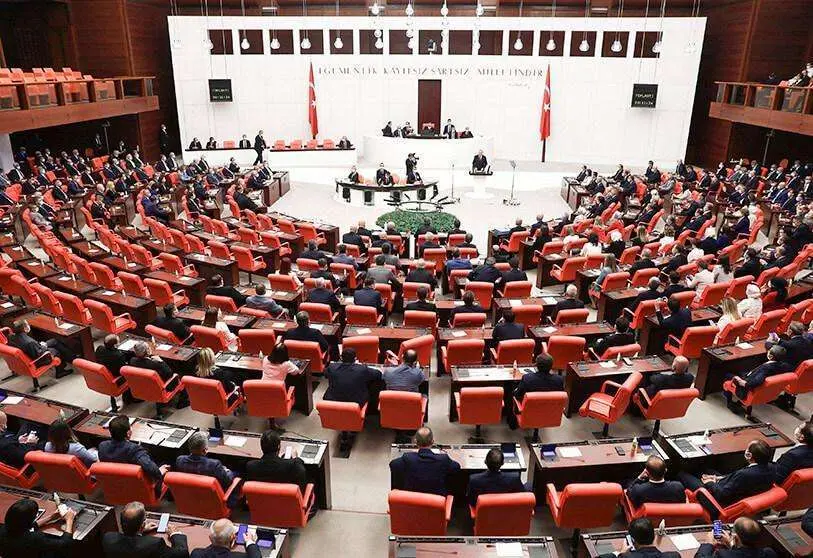The Kurdish parties, key to Turkey's 2023 elections

The presidential and parliamentary elections scheduled for 18 June 2023 in Turkey look set to be the most decisive in recent decades. Either the current president, Recep Tayyip Erdogan, will definitively consolidate his power after almost 20 years in power - the last five of which he has held the dual position of head of state and head of government -, or the political chessboard will undergo one of the biggest changes since the beginning of the century, opening up, for the first time, a multi-party space where the political spectrum can move away from the basic "for/against" Erdogan.
Journalist Amed Dicle, editor of MedyaNews, a specialised media outlet on the Kurdish cause, claims that the Turkish political scene is currently divided into three main blocs. The first is a right-wing Islamist nationalist bloc, made up of the Justice and Development Party (AKP), of which the current president is a member, and its ally in the People's Alliance coalition, the Nationalist Movement Party (MHP), as well as other minority groups.

In second place, Dicle places the opposition, also nationalist but with a marked secular liberalism, comprising the Republican People's Party (CJP) and the İyi Party (also known as the Party of Good), among others. However, despite their somewhat more progressive leanings, the journalist specialising in the Kurdish minority warns of the tendency of this second group to reject the Kurds, as is the case with the People's Alliance and related formations.
The pro-Kurdish bloc led by the Peoples' Democratic Party (known by its acronym HDP) is the third group identified by Dicle, and - given that none of the three blocs seems strong enough to win the next elections in 2023 with 50 percent of the vote or more - it could become a key ally in securing a parliamentary majority. Several of the latest polls claim that Turkey's current 15 million Kurds (around 20 per cent of the total population) could give the pro-Kurdish alliance 15 per cent of popular support at the ballot box. A volume of votes that would put the HDP and its partners on the winning side, whichever side they are on.

For all these reasons, the former mayor-elect of the Turkish city of Diyarbakır in 2019, Orhan Ayaz, candidate of the Peoples' Democratic Party (which was never allowed to take office, despite having more than 70% of the local votes) declared: "we have more than six million voters [in a country of 85 million] and we want [to run in the next elections with] a brave candidate who supports the cause of the Kurds".
As Kurdish analyst and president of the Tigris Social Research Centre (DiTAM) Mesut Azizoğlu explained to Arab News, "all governments from the beginning of the Turkish Republic until today are afraid of the Kurds, and almost all their policies have been based on that fear". "We will not support a bloc that does not support us", was the political position of HDP candidate Ayaz, along the same lines as a local Kurdish-Turkish businessman, who told Arab News that "the Kurds will not vote for their enemy. [...] It is enough for them to remain neutral, and that is enough for [the current president] Erdogan to prevail".

Journalist Amed Dicle stresses that for the pro-Kurdish formations, the prospects of winning a ministerial post are almost impossible (something that already became clear when the government objected to the statements of a member of parliament who proposed handing over a ministry to the HDP group). However, he explains that his role will be key. "The HDP has announced that it will participate in the parliamentary elections with its own allies, but that for the presidential elections it would support a suitable unitary candidate [for its cause]," he says.
The situation of pro-Kurdish political formations on the Turkish national scene has been marked, almost since the dawn of Kurdish nationalism, by repression and persecution by the Ankara government. As early as the 1990s, more than a dozen Kurdish parties were banned or forced to dissolve following the convictions and imprisonment of their leaders, who were accused - and are still accused today - of being akin to the Kurdistan Workers' Party (PKK), a political formation founded by Abdullah Öcalan and considered by Turkey and many other international powers as a terrorist group after it took up arms in 1984.

"The PKK was a popular movement born out of pressure from the Kurds", Orhan Ayaz points out, "it did not fall from the sky". A claim that the DiTAM president maintains, among other things, because of the Ankara law - still in force - that prohibits education, publication and dissemination of texts in the Kurdish language.
"What we want now is a peaceful and political solution. The military way is not a solution. But for that you need a democratic system that can silence the guns," Ayaz said, as in recent years as many as 60 elected HDP officials have followed in the mayor's footsteps: despite being elected by ballot, it is other members of the AKP (the party led by Erdogan) who hold office due to accusations of collaborating with terrorists. "All these terrorism charges are just trying to criminalise the HDP", Ayaz concludes, as Turkey's chief prosecutor's office continues to work to outlaw the pro-Kurdish party or at least stop its funding channels and freeze its accounts.








